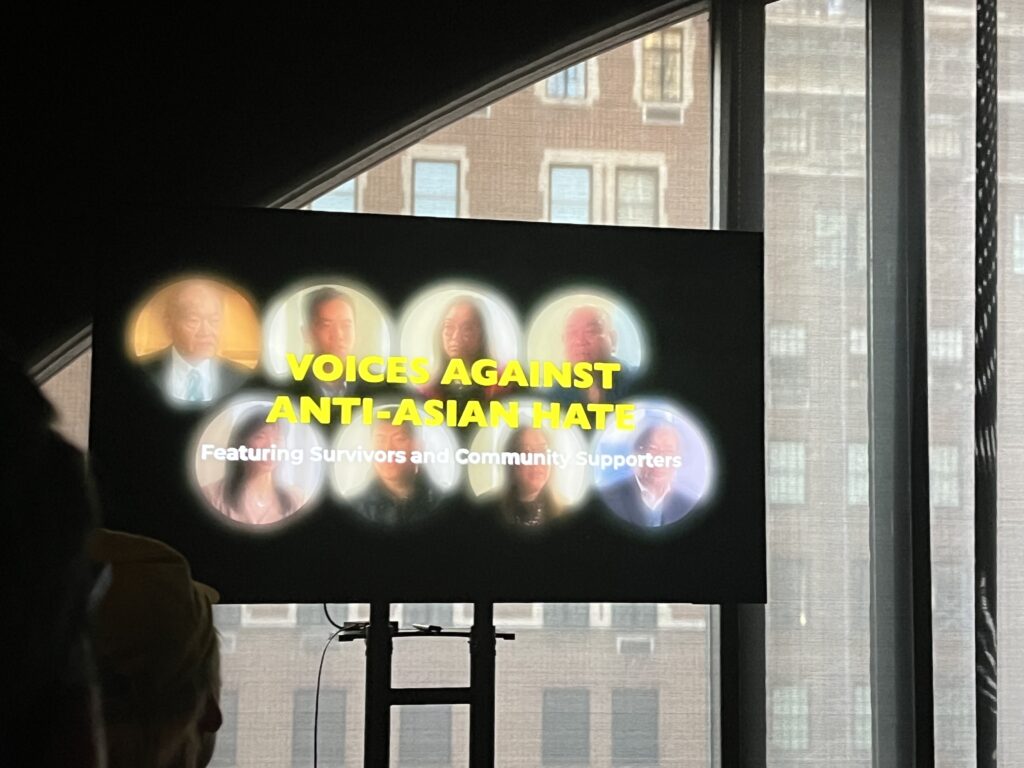
On Tuesday, June 24, 2025, the Asian American Bar Association of New York (AABANY) co-sponsored a screening of its documentary “Voices Against Anti-Asian Hate” at the Asia Society in New York City. This newly released version, which had never been shown before, added an introduction providing historical context on anti-Asian hate and violence in America. The documentary focuses on the rise of anti-Asian hate crimes during the COVID-19 pandemic, featuring the voices of victims, their families, and community advocates who shared their personal experiences.
The event featured a screening followed by two panel discussions. The first panel featured selected participants from the film, including Michael Zhu, Justin Go, the father of Michelle Go, and Sungkon Lee, the father of Christina Yuna Lee. The second panel featured esteemed advocates Glenn Magpantay, Commissioner, U.S. Commission on Civil Rights, and Jennifer H. Wu, founding partner of Groombridge Wu Baughman & Stone, who discussed the systemic and historical factors that have contributed to the targeting of the AAPI community.
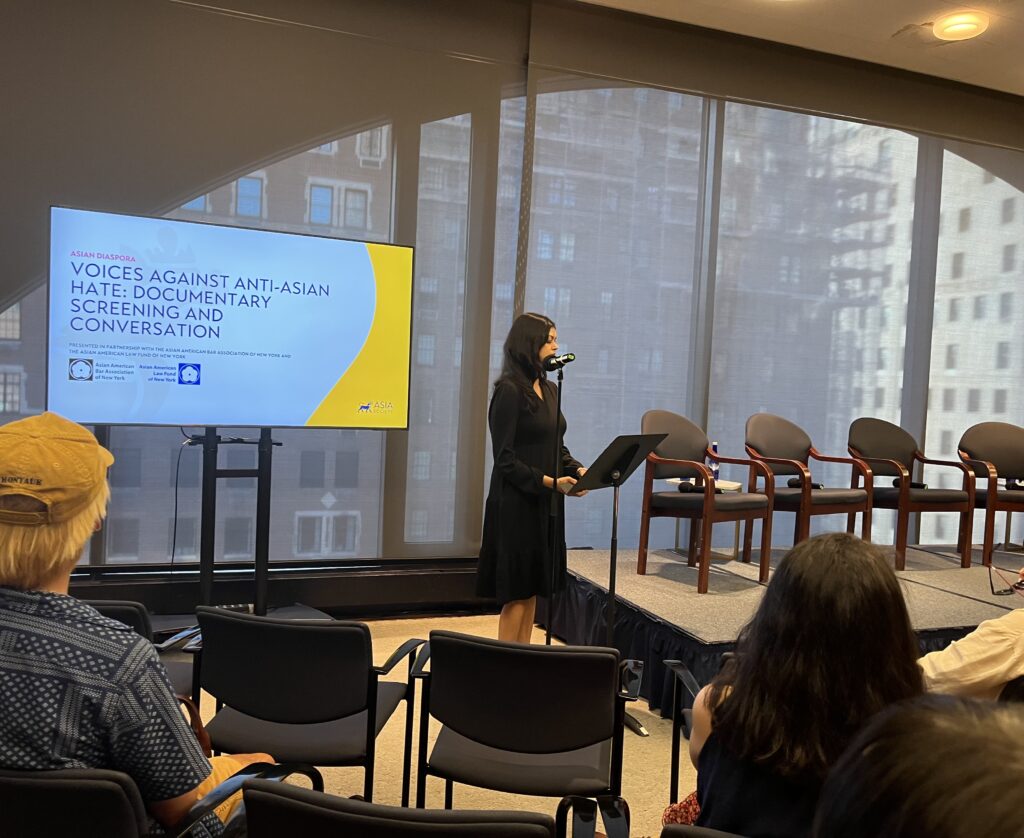
The screening began with a short introduction by Neelam Chowdhary, Vice President of Education at Asia Society, who introduced the documentary and stated that “the fight against race-based hate is far from over and our work towards a more equitable justice system must continue.” She thanked the partners and sponsors who made the screening possible and introduced the panelists who would speak later in the evening.
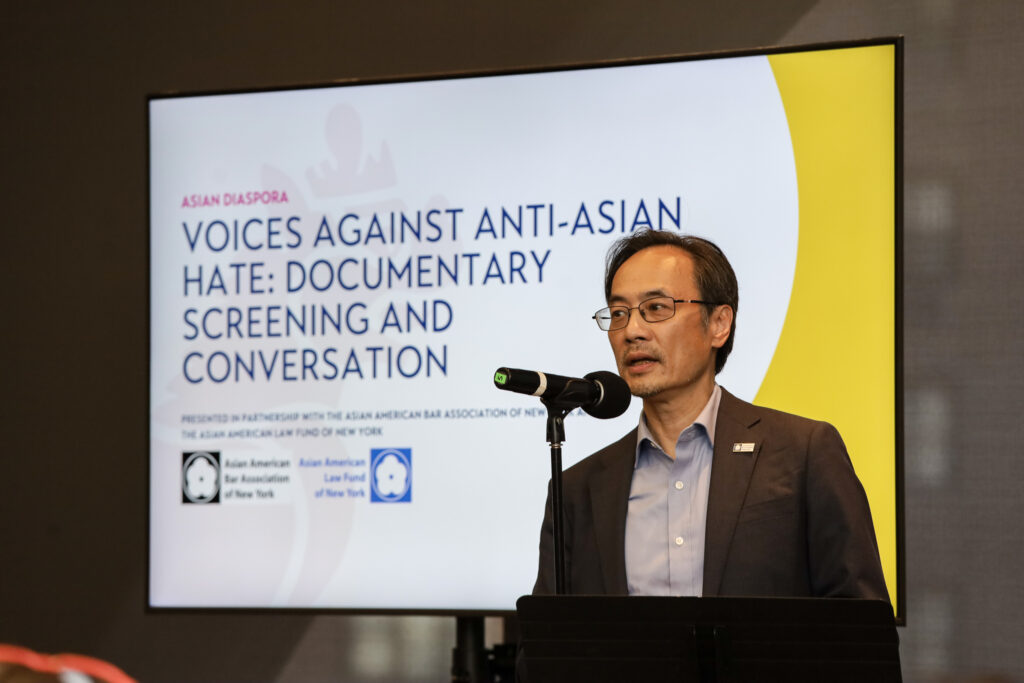
Next, AABANY’s Executive Director, Yang Chen, discussed the story of how the documentary came into being. After the AABANY Anti-Asian Violence Task Force was formed after the first year of the pandemic, it produced two well-received reports on anti-Asian hate and violence. Rather than produce a third report, the Task Force decided to make a documentary instead, to record the memories and recollections of victims, survivors, and activists.
After opening remarks, the documentary was presented. It ran for a little over thirty minutes, and the stage was set for the first panel.
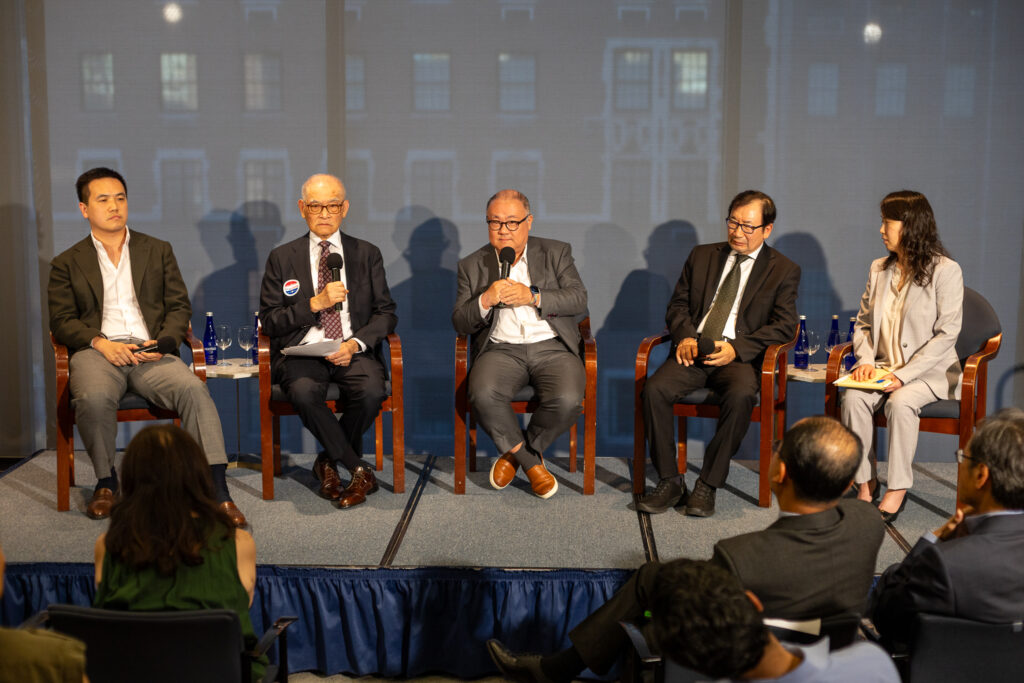
After the screening, moderator Chris Kwok (center in the photo above) introduced the panelists: Michael Zhu, Justin Go, Sungkon Lee and his translator, Hana Park (ordered from left to right). They discussed their insights into anti-Asian hate crimes and shared the experiences of the victims and their families years after the attacks. Chris began the discussion by familiarizing the audience with the current lives of the survivors and raising the question of how the Asian American community can make things better.
Michael Zhu, survivor of a brutal knife attack, commented that he had found a new perspective in life. After expressing his gratitude to his family and the surgeons, he said he was thankful his life has mostly returned to normal. Sungkon Lee, the father of Christina Yuna Lee, lamented the tragic murder of his daughter in his everyday life and is working towards getting a homeless shelter named in memory of his daughter as a way to prevent future horrific murders like the one Christina Yuna Lee suffered. Like Mr. Lee, Justin Go continued to live with deep pain following the passing of his daughter Michelle: “We still miss her funny laugh, her generosity, her cross-country flights to see family and friends even though we knew she had worked long hours at various projects.” Mr. Go then went on to discuss and advocate for the Michelle Alyssa Go Act, pending in Congress, which would amend the definition of an “Institution for Mental Diseases” under Medicaid, raising the number of Medicaid-eligible inpatient psychiatric beds a care facility can have from 16 to 36.
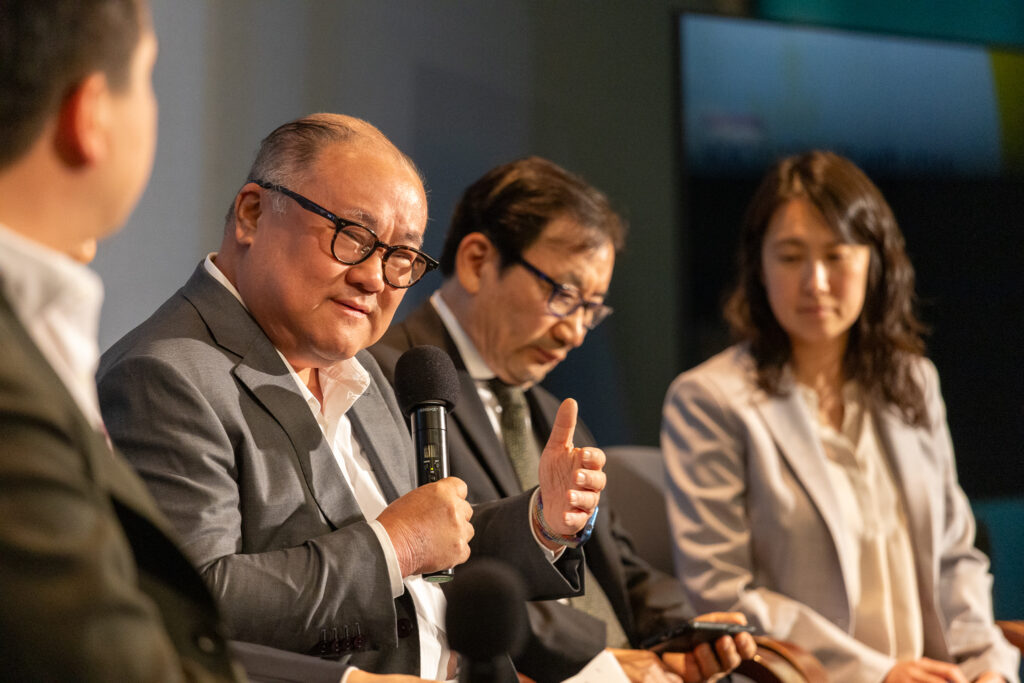
After the discussion with the survivors, panelists Glenn Magpantay and Jennifer H. Wu were invited to the stage to share their work on fighting Asian hate crime and their views on the issue. Glenn emphasized the need for greater enforcement and possible reform of hate crime laws. Jennifer underscored the importance for Asian Americans to speak up when their rights are violated, even when the community normalizes the idea that “it’s safer to stay silent than to speak up.” She urged victims to make their voices heard by the public.
Chris then turned to specific hate crime laws, and both speakers expressed their frustration with the current state of the law. Glenn discussed the COVID-19 Hate Crimes Act, which allowed alleged assailants to go out on supervised release instead of jail, which he believed would cause more danger to victims once they are released. Jennifer expressed the difficulty in charging a hate crime because prosecutors are often dismissive of such reports and encounter challenges in proving that the crime was indeed motivated in whole or substantial part by prohibited hate.
Then, the panelists opened the floor for questions. Most notably, a member of the audience asked the appropriate steps to take if harassed. Jennifer responded by saying that the first step is to call AABANY and the second is to trust the institutions that are supposed to carry out justice. She also encouraged the audience to show up for other communities: “If we don’t show up for other people, how will they show up for us?” She emphasized the importance of allyship. Following the discussions, guests were invited to a reception. Drinks were served and audience members discussed the documentary among themselves, and with the panelists, victims, and loved ones who stayed behind after the discussion.
Special thanks to the Asia Society for hosting this event and to all who attended the screening. We extend our gratitude to the survivors, Justin Go, Michael Zhu, and Sungkon Lee for their courage in sharing their story, and to the advocates, Glenn Magpantay, Jennifer H. Wu, and Chris Kwok for their insights and profound contributions to the AAPI community.
If you are interested in hosting a screening and panel discussion, please contact Daphne Mei, Program Manager, AABANY Anti-Asian Violence Task Force, at [email protected].
Thanks to Nick Tan for the event photos, courtesy of the Asia Society (unless otherwise noted).


